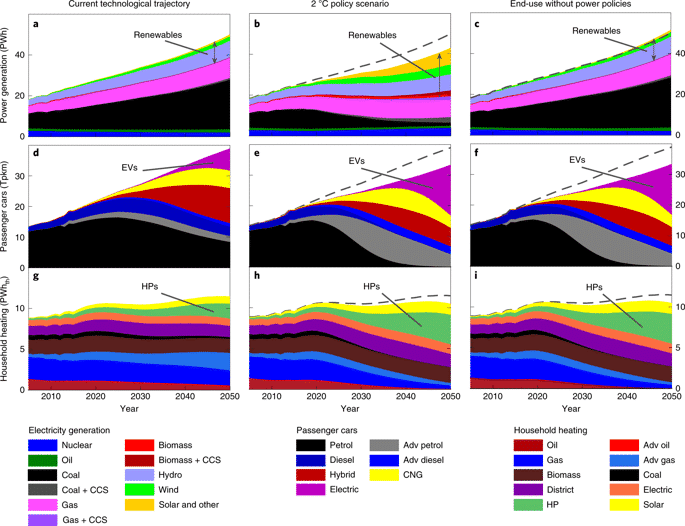Comparing the “eco-certificate” for electric and gasoline vehicles is not as simple as calculating carbon emissions from exhaust pipes.
New research claims to have resolved the debate once and for all by considering all factors, including the production and charging process of electric vehicles, and found that they are more climate-friendly in 95% of the world.
Although there is no argument that electric vehicles actually reduce pollution after driving on the road, some people believe that the carbon dioxide produced during the manufacturing of electric vehicles and the process of charging electric vehicles actually exceeds the carbon dioxide produced by vehicles with internal combustion engines.
The idea is that while renewable energy can play a role in the energy mix, electric vehicle owners still need to rely heavily on coal and gas-fired power plants to keep their cars charged and running.
The new research, carried out by scientists at the University of Exeter, the University of Cambridge, and the University of Nijmegen in the Netherlands, has found that, with exceptions, electric vehicles are generally more climate-friendly in most places.
To reach these conclusions, the team divided the world into 59 regions to classify different power generation and technology approaches, while also considering current and future emissions from different types of vehicles, production chain emissions, and waste disposal.
According to analysis, in 53 of these regions, the overall emissions of electric vehicles are lower than gasoline-powered vehicles.
This includes most European countries and densely populated countries, such as the United States and China. Researchers have calculated that the average lifespan of electric vehicles in Sweden and France is 70% lower than that of ICE-powered vehicles.
Renewable and nuclear energy account for most of the energy supply in these two countries, while in the UK it is 30% lower. They found exceptions to places like Poland, where coal is burned to produce most of the country's electricity.
As part of the research, the scientists also compared household heat pumps powered by electricity with heating systems powered by fossil fuels and found that in 95% of the world they also produce lower carbon emissions.
The research team calculated that if they were adopted worldwide, they could reduce global carbon dioxide emissions by as much as 800 million tons per year by 2050.
The study's lead author, Dr. Florian Noblech of the University of Nijmegen, said: "Given the emissions from the manufacture and continued use of energy, it is clear that we should encourage the switch to electric vehicles and domestic heat pumps. "
The study was published in the journal Nature Communications.
https://www.nature.com/articles/s41893-020-0488-7
